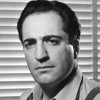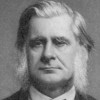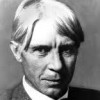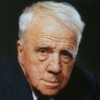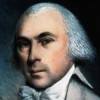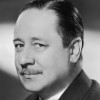Peace is generally good in itself, but it is never the highest good unless it comes as the handmaid of righteousness; and it becomes a very evil thing if it serves merely as a mask for cowardice and sloth, or as an instrument to further the ends of despotism or anarchy. We despise and abhor the bully, the brawler, the oppressor, whether in private or public life, but we despise no less the coward and the voluptuary. No man is worth calling a man who will not fight rather than submit to infamy or see those that are dear to him suffer wrong. No nation deserves to exist if it permits itself to lose the stern and virile virtues; and this without regard to whether the loss is due to the growth of a heartless and all-absorbing commercialism, to prolonged indulgence in luxury and soft, effortless ease, or to the deification of a warped and twisted sentimentality.
Theodore Roosevelt (1858-1919) American politician, statesman, conservationist, writer, US President (1901-1909)
Nobel Peace Prize Lecture, Oslo (5 May 1910)
Full text.
Now everything is funny as long as it is happening to somebody Else, but when it happens to you, why it seems to lose some of its Humor, and if it keeps on happening, why the entire laughter kinder Fades out of it.
I happen to think that the singular evil of our time is prejudice. It is from this evil that all other evils grow and multiply. In almost everything I’ve written there is a thread of this: a man’s seemingly palpable need to dislike someone other than himself
Should, hereafter, those incited by the lust of power and prompted by the Supineness or venality of their Constituents, overleap the known barriers of this Constitution and violate the unalienable rights of humanity: it will only serve to shew, that no compact among men (however provident in its construction and sacred in its ratification) can be pronounced everlasting and inviolable, and if I may so express myself, that no Wall of words, that no mound of parchm[en]t can be so formed as to stand against the sweeping torrent of boundless ambition on the side, aided by the sapping current of corrupted morals on the other.
Good-nature is more agreeable in conversation than wit, and gives a certain air to the countenance which is more amiable than beauty. It shows virtue in the fairest light, takes off in some measure from the deformity of vice, and makes even folly and impertinence supportable.
Joseph Addison (1672-1719) English essayist, poet, statesman
The Spectator, No. 169 (1711-09-13)
(Source)
Is it necessary that Heaven should borrow its light from the glare of Hell? Infinite punishment is infinite cruelty, endless injustice, immortal meanness. To worship an eternal gaoler hardens, debases, and pollutes even the vilest soul. While there is one sad and breaking heart in the universe, no good being can be perfectly happy.
Robert Green Ingersoll (1833-1899) American lawyer, agnostic, orator
“The Great Infidels” (1881)
(Source)
The great end of life is not knowledge but action.
T. H. Huxley (1825-1895) English biologist [Thomas Henry Huxley]
“Technical Education” (1877)
Full text.
Administrivia: Passing the 6,000 mark
While the odometer at the top of WIST isn’t exact (it includes about 50-odd Administrivia posts such as this), it appears we’ve rollled well past the 6,000 quotations mark. While there are a lot of sites with more, I’d like to think that the loving attention I give to each and every quote I put up here makes WIST a bit special.
It remains a labor of love, and I plan to be around for at least another 6,000.
Neither acquiescence in skepticism nor acquiescence in dogma is what education should produce. What it should produce is a belief that knowledge is attainable in a measure, though with difficulty; that much of what passes for knowledge at any given time is likely to be more or less mistaken, but that the mistakes can be rectified by care and industry.
If we should hear it reported of the Eastern People, that their usual Drink is a Liquor which flies up into the Head, makes them mad, and sets them a-vomiting, we should be apt to lift up our Hands and say, These sottish Barbarians!
[Si nous entendions dire des Orientaux qu’ils boivent ordinairement d’une liqueur qui leur monte à la tête, leur fait perdre la raison et les fait vomir, nous dirions: «Cela est bien barbare.»]
Jean de La Bruyère (1645-1696) French essayist, moralist
The Characters [Les Caractères], ch. 12 “Of Opinions [Des Jugements],” § 24 (12.24) (1688) [Browne ed. (1752)]
(Source)
(Source (French)). Alternate translations:
If we should talk of the Eastern People, how they ordinarily drink a Liquor that takes the head, makes them mad, and forces them to vomit, we should be apt to say 'tis Barbarous.
[Bullord ed. (1696)]
If we should hear it reported of the Eastern People, how they ordinarily drink a Liquor which flies up into the Head, makes them mad, and forces them to vomit, we should be apt to say, this is very Barbarous.
[Curll ed. (1713)]
If we should hear it reported of an Eastern nation that they habitually drink a liquor which flies to their head, drives them mad, and makes them very sick, we should say they are barbarians.
[tr. Van Laun (1885)]
If we heard it said of Orientals that they habitually drank a liquor which went to their heads, deprived them of reason, and made them vomit, we should say: “How very barbarous!”
[tr. Stewart (1970)]
Cities may be rebuilt, and a People reduced to Poverty, may acquire fresh Property: but a Constitution of Government once changed from Freedom, can never be restored. Liberty, once lost, is lost forever.
But if survival calls for the bearing of arms, bear them, you must. As we all have. Keep in mind only this, that province of combat is not the end, it is simply the means. And the most essential part of the challenge is for you to find another means that does not come with the killing of your fellow-man.
Rod Serling (1924-1975) American screenwriter, playwright, television producer, narrator
Commencement Speech, Binghamton Central High School, Binghamton, New York (28 Jan 1968)
(Source)
Sometimes paraphrased:
If survival calls for the bearing of arms, bear them you must. But the most important part of the challenge is for you to find another means that does not come with the killing of your fellow man.
I abhor unjust war. I abhor injustice and bullying by the strong at the expense of the weak, whether among nations or individuals. I abhor violence and bloodshed. I believe that war should never be resorted to when, or so long as, it is honorably possible to avoid it. I respect all men and women who from high motives and with sanity and self-respect do all they can to avert war. I advocate preparation for war in order to avert war; and I should never advocate war unless it were the only alternative to dishonor.
Human history can be viewed as a slowly dawning awareness that we are members of a larger group. Initially our loyalties were to ourselves and our immediate family, next, to bands of wandering hunter-gatherers, then to tribes, small settlements, city-states, nations. We have broadened the circle of those we love. We have now organized what are modestly described as super-powers, which include groups of people from divergent ethnic and cultural backgrounds working in some sense together — surely a humanizing and character building experience. If we are to survive, our loyalties must be broadened further, to include the whole human community, the entire planet Earth.
it would be a dangerous delusion were a confidence in the men of our choice to silence our fears for the safety of our rights; that confidence is every where the parent of despotism; free government is founded in jealousy, and not in confidence; it is jealousy, and not confidence, which prescribes limited constitutions to bind down those whom we are obliged to trust with power; that our Constitution has accordingly fixed the limits to which, and no farther, our confidence may go. […] In questions of power, then, let no more be said of confidence in man, but bind him down from mischief by the chains of the Constitution.
Thomas Jefferson (1743-1826) American political philosopher, polymath, statesman, US President (1801-09)
“Kentucky Resolutions,” Resolution 9 (1798)
(Source)
In protest of the Alien and Sedition Acts.
Testimony of all ages forces us to admit that war is among the most dangerous enemies to liberty, and that the executive is the branch most favored by it of all the branches of Power.
The Second Day of July 1776, will be the most memorable Epocha, in the History of America. — I am apt to believe that it will be celebrated, by succeeding Generations, as the great anniversary Festival. It ought to be commemorated, as the Day of Deliverance by solemn Acts of Devotion to God Almighty. It ought to be solemnized with Pomp and Parade, with Shews, Games, Sports, Guns, Bells, Bonfires and Illuminations from one End of this Continent to the other from this Time forward forever more.
John Adams (1735-1826) American lawyer, Founding Father, statesman, US President (1797-1801)
Letter to Abigail Adams (1776-07-03)
(Source)
The Colonial Congress approved of the Independence Resolution on 2 July. The final agreement on the Declaration, and its signing, was on 4 July.
Metaphysicians and politicians may dispute forever, but they will never find any other moral principle or foundation of rule or obedience, than the consent of governors and governed.
The word religion is extremely rare in the New Testament or the writings of mystics. The reason is simple. Those attitudes and practices to which we give the collective name of religion are themselves concerned with religion hardly at all. To be religious is to have one’s attention fixed on God and on one’s neighbor in relation to God. Therefore, almost by definition, a religious man, or a man when he is being religious, is not thinking about religion; he hasn’t the time. Religion is what we (or he himself at a later moment) call his activity from the outside.
When I read the epitaphs of the beautiful, every inordinate desire goes out; when I meet with the grief of parents upon a tombstone, my heart melts with compassion; when I see the tomb of the parents themselves, I consider the vanity of grieving for those whom we must quickly follow: when I see kings lying by those who deposed them, when I consider rival wits placed side by side, or the holy men that divided the world with their contests and disputes, I reflect with sorrow and astonishment on the little competitions, factions, and debates of mankind.
So then, I am simply in favor of intellectual hospitality — that is all. You come to me with a new idea. I invite you into the house. Let us see what you have. Let us talk it over. If I do not like your thought, I will bid it a polite “good day.” If I do like it, I will say: “Sit down; stay with me, and become a part of the intellectual wealth of my world.” That is all.
Robert Green Ingersoll (1833-1899) American lawyer, agnostic, orator
“The Limits of Toleration,” debate at the Nineteenth Century Club, New York (8 May 1888)
(Source)
Three hundred years ago it mattered comparatively little. But now that you have the age of national self-realization, the age of colonial expansion, the age of the barbarian invasions and the age of the decline and fall, all jammed cheek by jowl in time and space, all armed alike with poison-gas and going through the outward motions of an advanced civilization, principles have become more dangerous than passions. It’s getting uncommonly easy to kill people in large numbers, and the first thing a principle does — if it really is a principle — is to kill someone.
Truth is better than much profit. I have searched over the grounds of my belief, and if wife and child and name and fame were all to be lost to me one after the other as the penalty, still I will not lie.
Injustice in this world is not something comparative; the wrong is deep, clear, and absolute in each private fate.
The nearest friends can go
With anyone to death, comes so far short
They might as well not try to go at all.
No, from the time when one is sick to death,
One is alone, and he dies more alone.
Friends make pretence of following to the grave,
But before one is in it, their minds are turned
And making the best of their way back to life
And living people, and things they understand.
Power is so apt to be insolent and Liberty to be saucy, that they are very seldom upon good Terms.
George Savile, Marquis of Halifax (1633-1695) English politician and essayist
“Of Prerogative, Power and Liberty,” Political, Moral, and Miscellaneous Thoughts and Reflections (1750)
(Source)
No other touchstone can test the heart of a man,
The temper of his mind and spirit, till he be tried
In the practice of authority and rule.[ἀμήχανον δὲ παντὸς ἀνδρὸς ἐκμαθεῖν
ψυχήν τε καὶ φρόνημα καὶ γνώμην, πρὶν ἂν
ἀρχαῖς τε καὶ νόμοισιν ἐντριβὴς φανῇ.]Sophocles (496-406 BC) Greek tragic playwright
Antigone, l. 175ff [Creon] (441 BC) [tr. Watling (1947)]
(Source)
Alt. trans.:
There is no man whose soul and will and meaning
Stand forth as outward things for all to see,
'Till he has shown himself by practice versed
In ruling under law and making laws.
[tr. Donaldson (1848)]
But hard it is to learn
The mind of any mortal or the heart,
Till he be tried in chief authority.
Power shows the man.
[tr. Campbell (1873)]
Yet 'tis no easy matter to discern
The temper of a man, his mind and will,
Till he be proved by exercise of power.
[tr. Storr (1859)]
Now, it is impossible to know fully any man's character, will, or judgment, until he has been proved by the test of rule and law-giving.
[tr. Jebb (1891)]
Never can man be known.
His mind, his will, his passion ne'er appear,
Till power and office call them forth.
[tr. Werner (1892)]
No man can be fully known, in soul and spirit and mind, until he hath been seen versed in rule and law-giving.
[tr. Jebb (1917)]
I am aware, of course, that no Ruler can expect complete loyalty from his subjects until he has been tested in office.
[tr. Fitts/Fitzgerald (1939)]
You cannot learn of any man the soul,
the mind, and the intent until he shows
his practice of the government and law.
[tr. Wyckoff (1954)]
There is no art that teaches us to know
The temper, mind, or spirit of any man
Until he has been proved by government
And lawgiving.
[tr. Kitto (1962)]
Of course you cannot know a man completely,
his character, his principles, sense of judgment,
not till he's shown his colors, ruling the people,
making laws. Experience, there's the test.
[tr. Fagles (1982), l. 194ff]
No man has a mind that can be fully known,
In character or judgment, till he rules and makes law.
[tr. Woodruff (2001)]
Now, there is no way to learn thoroughly the essence
of the whole man as well as his thought and judgment
until he has been seen engaged in ruling and making laws.
[tr. Tyrell/Bennett (2002)]
It’s impossible
to really know a man, to know his soul,
his mind and will, before one witnesses
his skill in governing and making laws.
[tr. Johnston (2005), ll. 198-201]
It is impossible to really learn a man’s
mind, thought and opinion before he’s been initiated
into the offices and laws of the state.
[tr. @sentantiq (2020)]
Hazel Scott
I think we musicians are emissaries. Every time we go before the public, we’re there to make converts. We can either be ugly and contemptuious in our behiavor, which will turn people off, or we can carry ourselves with dignity and pride. We can’t expect anyone else to respect us if we don’t respect ourselves. Why should they do more than us than we do for ourselves?
—
Our posturings, our imagined self-importance, the delusion that we have some privileged position in the Universe:, are challenged by this point of pale light. Our planet is a lonely speck in the great enveloping cosmic dark. In our obscurity, in all this vastness, there is no hint that help will come from elsewhere to save us from ourselves.


